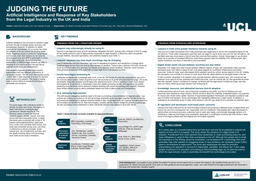Discovering True Leadership
Before the Laidlaw Scholarship, I thought I had a pretty clear understanding of what leadership meant. I saw it as being about taking charge, making decisions, and guiding others toward a goal—textbook definitions that seemed straightforward. I’d been in leadership roles before and thought I knew what it involved. But it wasn’t until I really engaged with leadership through the opportunities the scholarship gave me—through the research project, the training, and my leadership project—that I realized how much more there is to it.
The leadership trainings we received as Laidlaw scholars were more than just lectures or workshops—they were a real opportunity to reflect on what leadership means and what causes we’re passionate about. We weren’t just taught leadership styles; we were pushed to consider the kind of leaders we want to become. I met some incredible people during that time, people whose perspectives challenged my thinking and helped me clarify my own values.
For my first-year research project, I explored the adoption of artificial intelligence (AI) in the legal industry, comparing the responses of legal professionals in the UK and India. The disparities were striking—while AI was slowly being integrated into the legal systems in the UK, India faced significant barriers, from lack of awareness to cost and infrastructural challenges. The digital divide was clear. In India, AI could be transformative, particularly when it came to addressing the enormous backlog of court cases, but without proactive policymaking and investment in training, that potential would remain untapped. What I took away from this project wasn’t just the importance of AI itself, but the role leadership plays in bridging these gaps, ensuring technology is used responsibly and fairly, especially in developing countries.
Then there was Johannesburg. For my Leadership in Action project, I flew to South Africa to volunteer at Lawyers for Human Rights (LHR), and that’s where everything I thought I knew about leadership began to shift. Working with refugees, asylum seekers, and migrants wasn’t just an exercise in applying legal knowledge—it was about empathy, about listening deeply to people who had been denied basic human rights. It wasn’t theoretical anymore. It was personal. Sitting with these individuals, hearing their stories of loss, fear, and hope—it taught me that leadership is about connection. It’s about truly understanding the human impact of what we do.In the clinic, I had to make quick decisions constantly—deciding who needed urgent help, managing a steady flow of clients, and dealing with cases where time and resources were always limited. That’s where I learned the importance of staying calm under pressure, of making tough calls when emotions are running high. It forced me to adapt quickly, to think on my feet. And then there was the patience and resilience I needed when we worked on strategic litigation—hundreds of phone calls to gather stories, case after case of systemic failure. It was frustrating, but it taught me persistence, something that any leader needs to make real change.But the biggest lesson I took away from LHR was about emotional intelligence. Leadership, I realized, isn’t just about being decisive or strategic. It’s about being aware of the emotional landscape—both yours and the people around you. It’s about guiding people through difficult situations with empathy and understanding. Being able to do that will be invaluable as I move forward, especially in human rights work where the stakes are so high.
My time and experiences as a Laidlaw scholar have taught me that leadership is about more than being in charge. It’s about empowering others, giving a voice to those who need it most, and using the law as a tool for justice and compassion. As I look ahead, I know these lessons will stay with me. This is the kind of leadership I want to embody—the kind that puts humanity first, always.


Please sign in
If you are a registered user on Laidlaw Scholars Network, please sign in